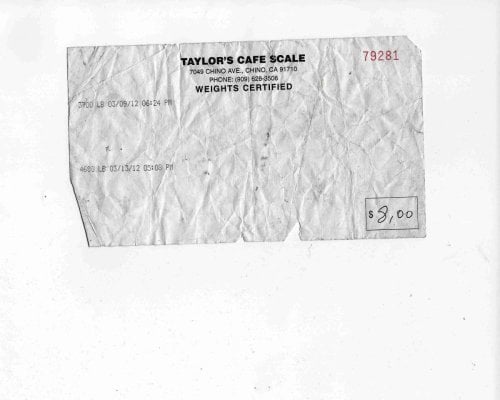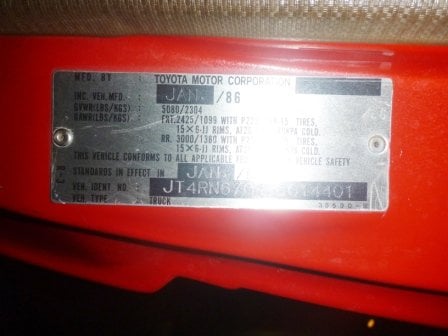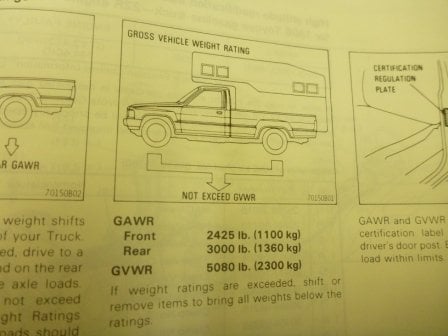Shadyapex
Senior Member
This has been a frustration for me as well. I have a 2014 Taco with a 2010 Eagle on it that's supposed to weigh 690 lbs. The truck is supposed to handle 1500 lbs to be at GVWR. Once I add recovery gear (CO2 tank, safe jack kit, jumper battery, modest tool kit), water, wine and the usual odds and ends I'm at 5870 lbs. GVWR is 5500 lbs. Can't remember if I got out of the truck for the weigh. I've added air bags and better shocks and the rig handles "OK." But definitely feels the weight and braking distance is significantly increased. I think a lot of rigs on the roads are over weight and I'm going with a bigger truck next time for sure.
Note: I originally had the Eagle on a '97 Taco and was immediately inspired to start thinking of a bigger truck, thought the 2014 would be enough, and it almost is.
Note: I originally had the Eagle on a '97 Taco and was immediately inspired to start thinking of a bigger truck, thought the 2014 would be enough, and it almost is.



